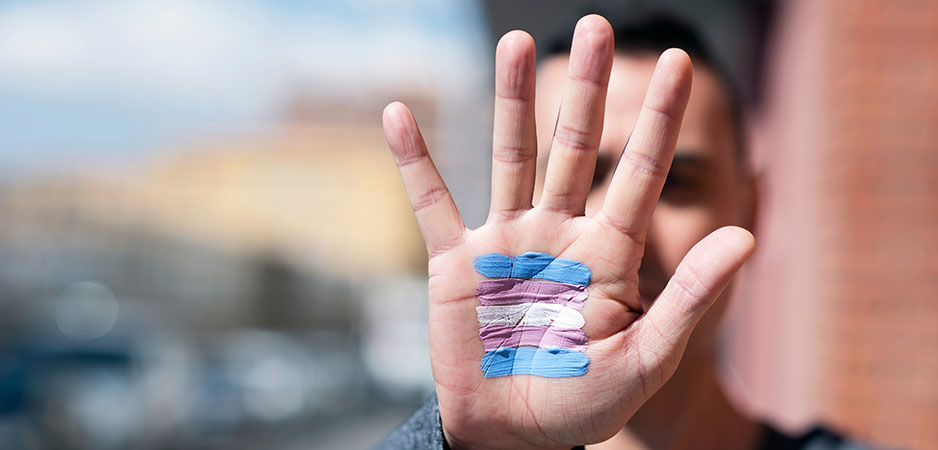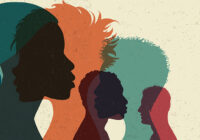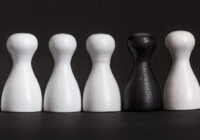Nobody is born a bigot.
Why does bigotry exist? Because it creates the illusion of order and normality in a chaotic world. Possessing or expressing strong, unreasonable beliefs and disliking others who have different, often contrasting, beliefs or puzzling ways of life explains disquieting problems to the bigot and provides a comfort of sorts.
I have spent the combative years of my life as a scholar, fighting different forms of bigotry. The foundation of my own philosophy is, first of all, that nothing is natural — we learn everything and, complex as it is to fathom, we can, given enough time and intellectual diligence, discover that we learn everything; second, that everything is relative — there are no universal truths but a bewildering number of versions, some more helpful than others; and, finally, that all forms of bigotry are based on rivalry or competition over resources considered by people to be valuable — jobs, land, status and so on. Appearance, language, faith and other characteristics typically picked out as denoting Otherness are merely convenient markers used to identify groups thought to be different and threatening.
In the 20th century, racism and sexism were great fault lines in Western society. Groups spuriously labeled “races” had been exploited and abused for centuries. But in the 20th century, people realized the wrongness of treating groups differently because of their putative natural differences. Sexism did not become a word until the late 1970s. I still have the 1975 edition of the Oxford English Dictionary I used as an undergraduate: Sexism isn’t in it.
I don’t know when homophobia was added to our lexicon. I suspect it filtered in through cultural use, at first by gays. By the 1990s, the AIDS pandemic ensured gay men and, to lesser extent women, suddenly fell into frightening disfavor. Everyone knew the meaning of homophobia. Gay men didn’t pose a threat in the same way as ethnic minorities or women, and while they remained the sole victims of AIDS, it appeared to some to be divine, cataclysmic retribution. It was when the disease spread beyond the gay world that hatred, and perhaps fear, of gay men grew spectacularly.
Tolerating Intolerance
No one is naïve enough to suppose racism has disappeared, or that sexism vanished the second Margaret Thatcher moved into 10 Downing Street. And it would be ludicrous to argue that Elton John singlehandedly banished revulsion at homosexuality. But, at the risk of ridicule, let me suggest that all these forms of bigotry have been dealt damaging blows by developments of the past 30 or so years.
Only a fool would hold that racism is as virulent as it was in the 1960s, or that sexist resistance to women’s claims for equality is at the same level it was in the 1970s. Or that the openness of gay men, their occupancy of prestigious positions in all industries and their conspicuous presence everywhere in society has not forced society to modify what was once endemic homophobia.
Today, no one would openly admit to holding bigoted beliefs. I know this is disputable, but my view is that intolerance is no longer tolerated. Generation X put paid to old prejudices. It might not have shown much enthusiasm for changing the world, but it changed attitudes effectively, pathologizing “isms” and “phobias,” or at least most of the big ones. One remains.
In the 1990s, there were transsexuals. They were people who had the physical characteristics of one sex even though they were assigned a different sex at birth. There were also transvestites, who dressed in a way that was not appropriate to their sex. This century, both terms were replaced by the less stable or precise transgender. This refers to people who, for any number of reasons, reject the traditional sexual binary of male/female and opt to live their lives in a way that defies conventional expectations or established categories. Their appearance has coincided with, or perhaps prompted, the emergence of gender fluidity. Gender is not as simple or changeless as most people in the late 20th century imagined it to be.
A Fight for Resources
Transphobia is a misleading appellation: Phobia suggests a fear of, anxiety over or allergy, whereas it describes hostility. At a time in history when delicacy toward others is practically enforced, hatred of transgender people is as old fashioned as the 1980s.
What’s more, no one is hiding this animosity. Figures from the feminist pantheon, such as Germaine Greer, have sneered at transgender women’s liminal status. Athletes like Sharron Davies have openly opposed trans athletes’ entry into sport, and tennis great and stalwart LGBTQ+ champion Martina Navratilova has made inflammatory remarks designed, it seems, to distance gay athletes from a group who should, logically, be allies.
Many would insist this is not a phobia of any sort, or even a form of bigotry: It is just a rational appraisal. But it is unlikely to persuade the rising number of trans people, who are victims of hate crime, or who feel marginalized and forced continually to justify themselves. I wrote earlier that bigotry has its roots in competition over scarce resources, and readers will wonder what is being contested. Womanhood is the plain answer.
Being a woman means belonging to a struggle that has been incubating for centuries and forms an indelible part of human history. I conjecture this is what’s on many people’s minds when they object to transgender people’s self-description as women.
Something similar might have been on Greer’s mind when she made her remark that “Just because you lop off your dick and then wear a dress doesn’t make you a fucking woman.” She was alluding to women’s history of being denied the right to own property, vote, keep their own income, be educated, serve in the military or in politics, or participate in dozens of other pursuits that men have controlled.
“Anyone born a man retains male privilege in society; even if he chooses to live as a woman.” This is how Michelle Goldberg, of The New Yorker, sums up her position, presumably the one Greer would adopt. Women haven’t been gifted their rights — they’ve fought for them. In other words, transgender women haven’t paid their dues.
Education, the military, criminal justice system and other mainstream institutions are striving to make satisfactory accommodations to gender fluidity. In 2017, Danica Roem became the first US transgender official when she won election to the Virginia House of Delegates and, more recently, she won reelection, beating her anti-LGBTQ+ and anti-abortion rival. It is also apparent that transgender males do not experience the same degree of resentment as transgender women — a perverse form of sexism, perhaps. So there are signs of change.
But there is resistance and, in some areas, for example, sport, opposition to trans athletes is bound to be fortified by women who feel they are being squeezed out of their own competitions.
Antipathy against trans people is unlikely to subside. The fear is imagined rather than real and, while the antipathy appears reasonable, it is not — it’s irrational. Followers of women’s liberation inverted Freud’s apothegm that “biology is destiny” to remind the world that personalities, behavior, interests and tastes are not determined by birth, but shaped by culture. The social world is not divisible into two types of people. Rather, sex is a spectrum of possibilities.
It is a calamity of fate that, after decades of battling repression of one sort or another, feminists are asking almost the same questions of transgender people that chauvinists asked of them, the main one being, “What’s wrong with the way things are?”
The views expressed in this article are the author’s own and do not necessarily reflect Fair Observer’s editorial policy.
Support Fair Observer
We rely on your support for our independence, diversity and quality.
For more than 10 years, Fair Observer has been free, fair and independent. No billionaire owns us, no advertisers control us. We are a reader-supported nonprofit. Unlike many other publications, we keep our content free for readers regardless of where they live or whether they can afford to pay. We have no paywalls and no ads.
In the post-truth era of fake news, echo chambers and filter bubbles, we publish a plurality of perspectives from around the world. Anyone can publish with us, but everyone goes through a rigorous editorial process. So, you get fact-checked, well-reasoned content instead of noise.
We publish 2,500+ voices from 90+ countries. We also conduct education and training programs
on subjects ranging from digital media and journalism to writing and critical thinking. This
doesn’t come cheap. Servers, editors, trainers and web developers cost
money.
Please consider supporting us on a regular basis as a recurring donor or a
sustaining member.
Will you support FO’s journalism?
We rely on your support for our independence, diversity and quality.






